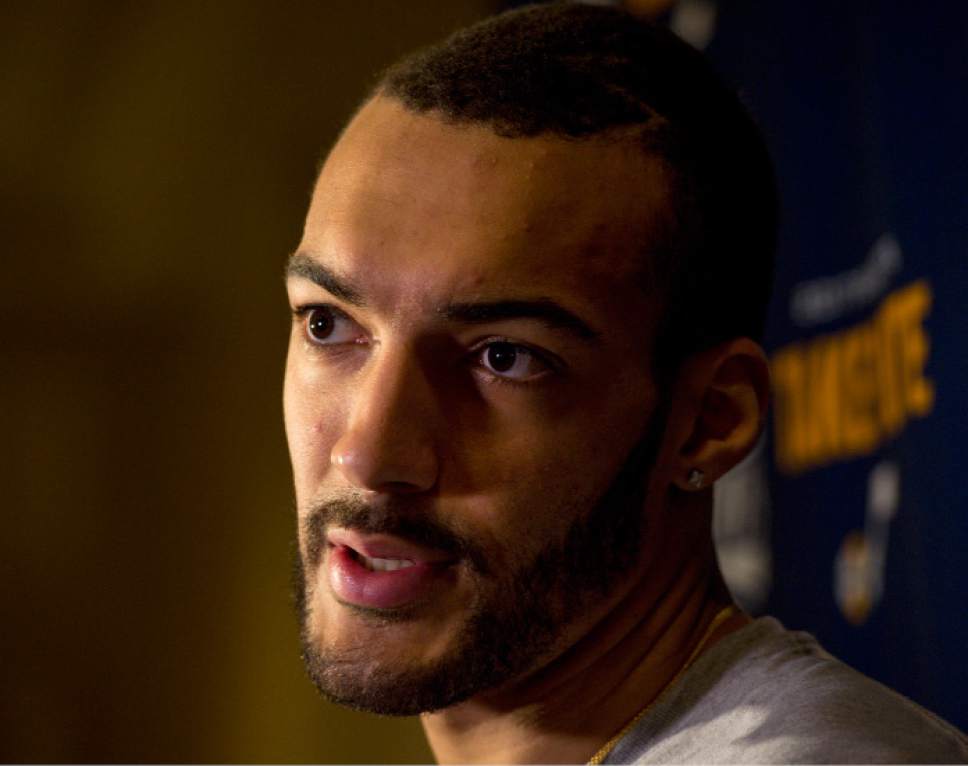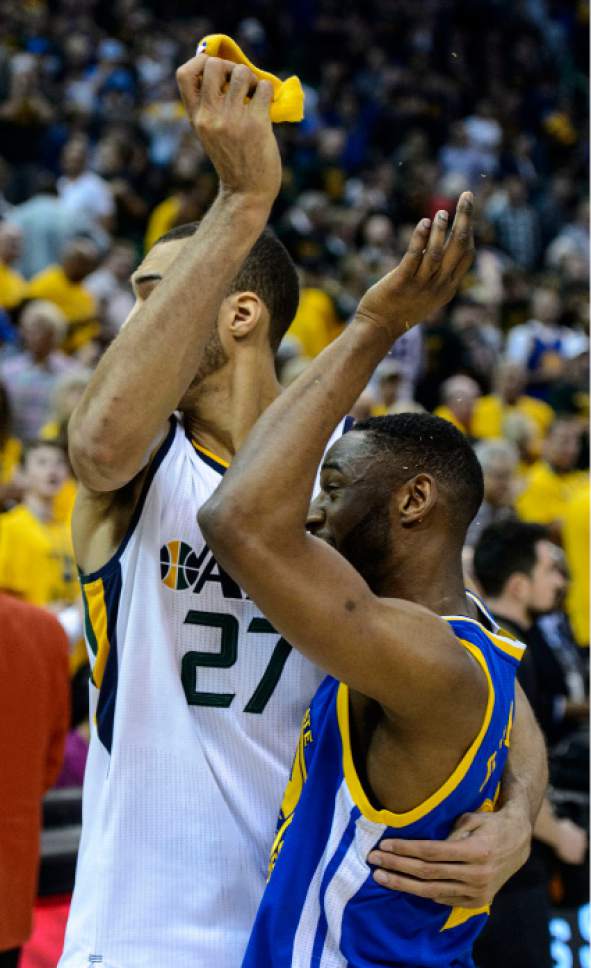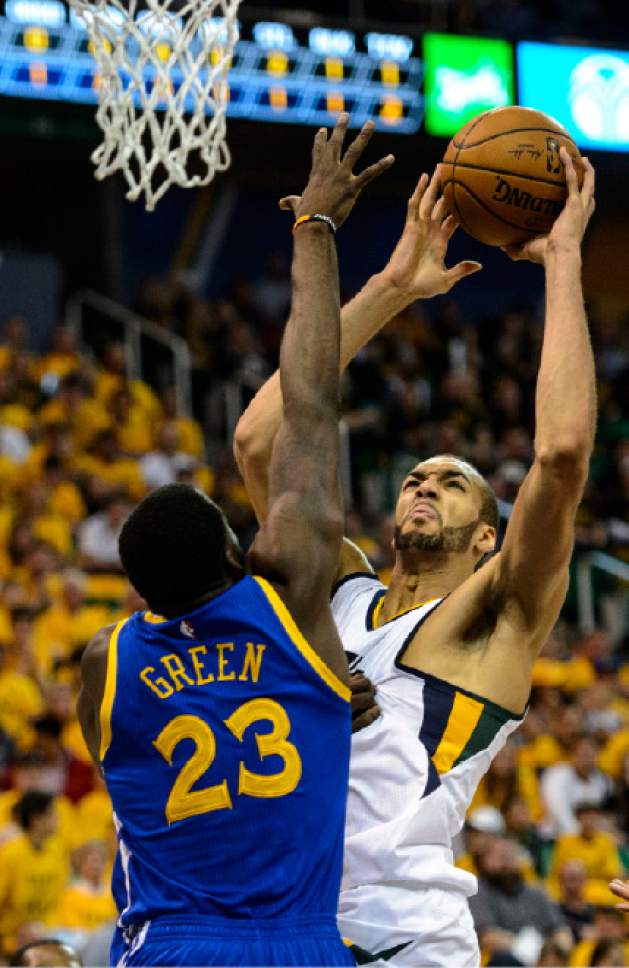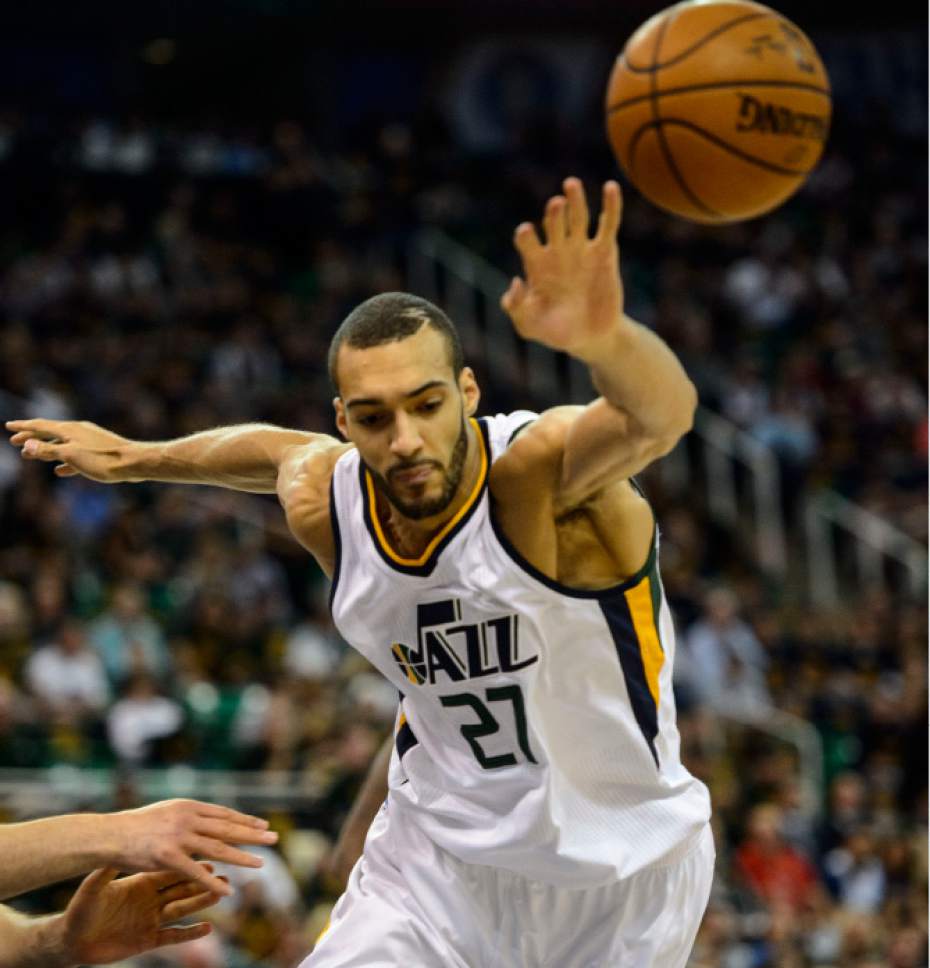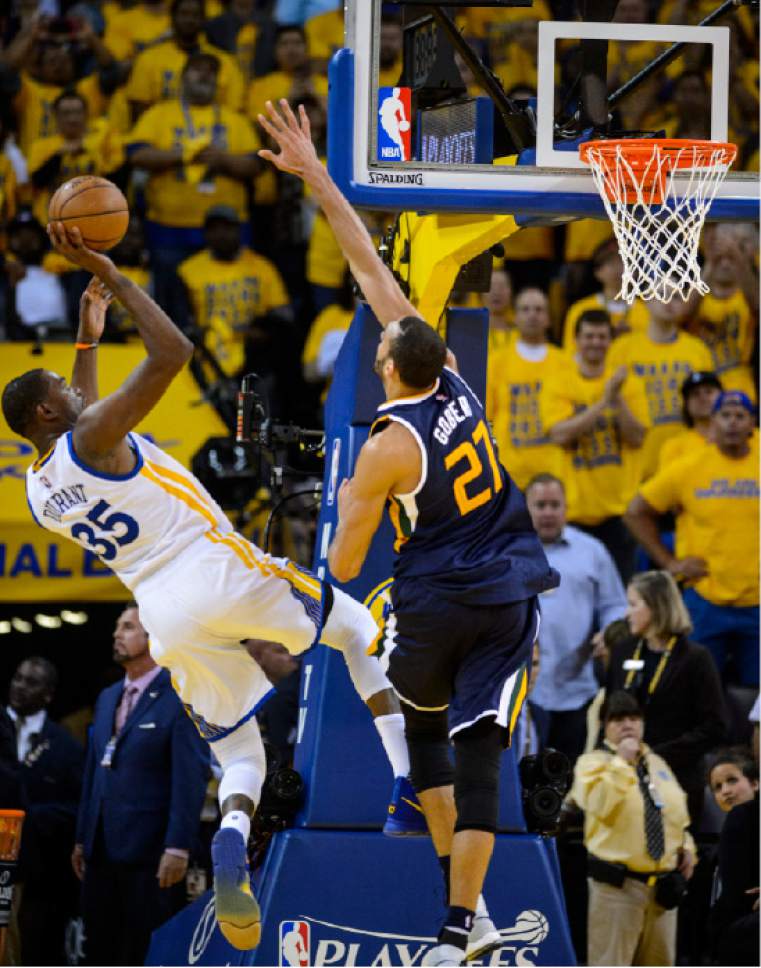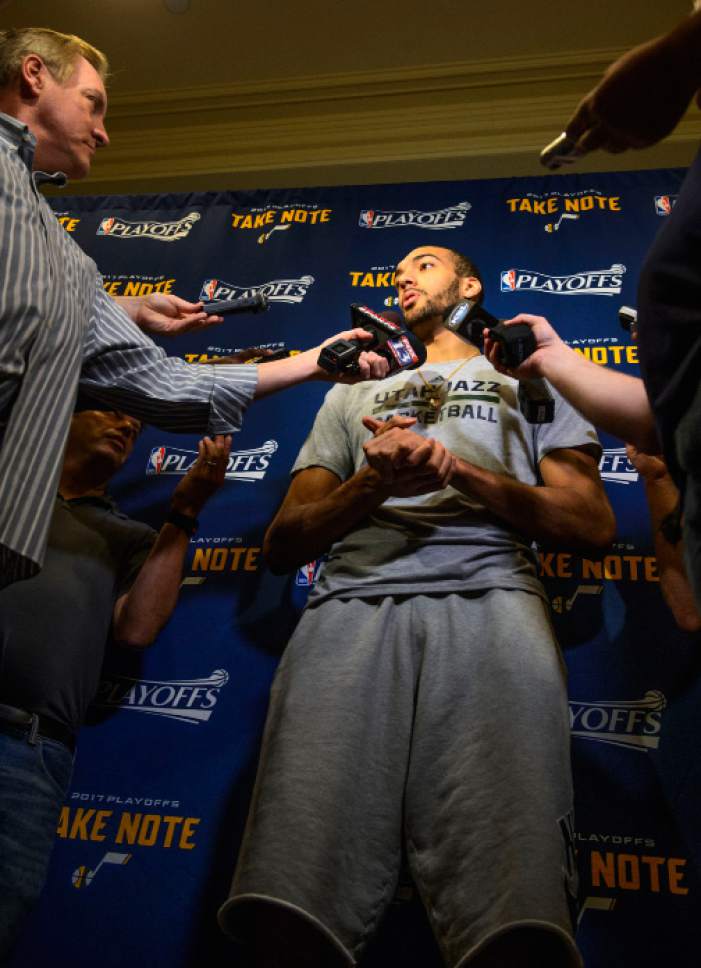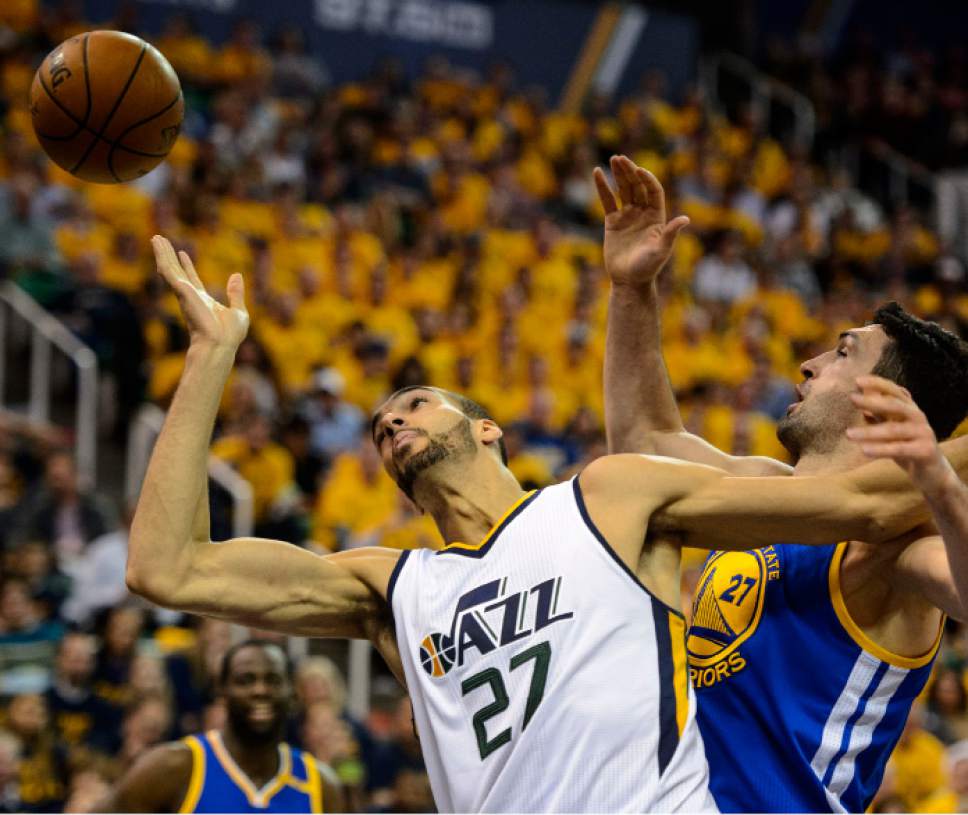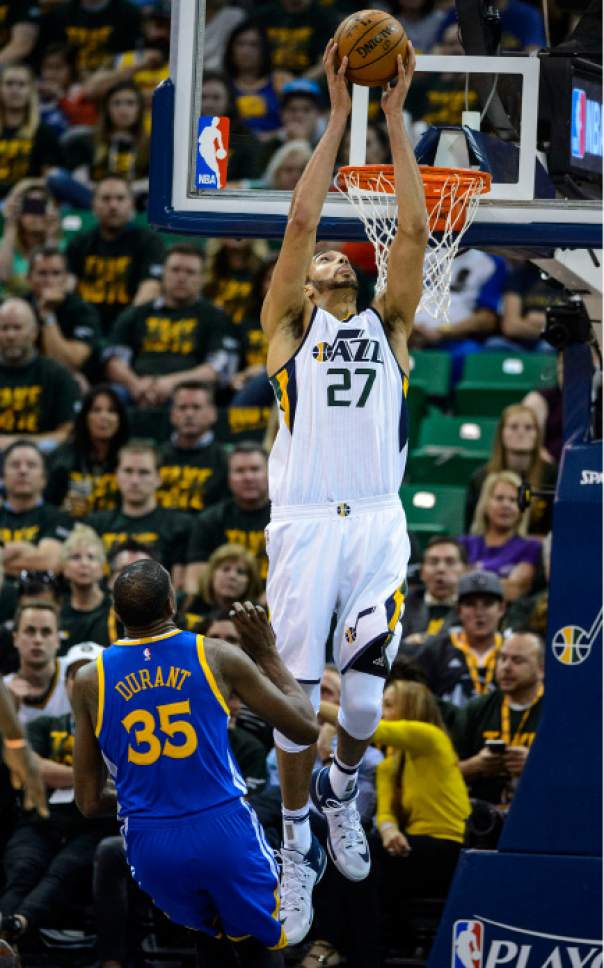This is an archived article that was published on sltrib.com in 2017, and information in the article may be outdated. It is provided only for personal research purposes and may not be reprinted.
Rudy Gobert believes the Jazz can win 60 games next season.
Six-oh.
That's only happened thrice before — in 1994-95 (60), in 1996-97 (64) and in 1997-98 (62), when Karl Malone, John Stockton and Jeff Hornacek were at the peak of their powers.
The Jazz going for 60 now? It sounds preposterous, especially in the West, where so many good teams make that kind of accomplishment much more difficult than in the East. But Gobert wasn't the only Jazz player to bring up that lofty win total.
For it to happen, four things have to align.
That alignment starts with Gordon Hayward returning. With all the work and opportunity the Jazz handed over to Hayward, watching that flow down the drain in free agency would be a kick to the tenders. If they lose their primary guy, short of signing a replacement free agent such as Jimmy Butler, they'd be hard-pressed to get back to 45 or 50 anytime soon.
Hayward is No. 1.
No. 2 is the potential hole at point guard being spackled. If George Hill leaves, what are the Jazz going to do? Dante Exum believes he's the answer. While that kind of confidence is encouraging for Quin Snyder, it's far from a sure thing. Exum has to eliminate the frequent trips of the past when he got himself into situations that caused either a turnover or a bad shot. If he's capable of the kind of improvement that served Hayward and Gobert so well, he will play in the NBA for many years and make a whole lot of money. If he can't, he'll be seen as a dubious fifth overall draft pick.
If the Jazz don't re-sign Hill, that leaves them with the options of trusting Exum or securing a proven point some other way. There are a few good floor leaders who will be on the move this offseason.
No. 3 is gaining another quality wing player who can straight shoot or shoot straight.
What the Jazz have now is inadequate for their intentions. It's a position management thought was covered by Hayward, Rodney Hood, Joe Johnson, Joe Ingles and Alec Burks. That's one of the reasons the Jazz took Trey Lyles in the draft two years ago instead of Devin Booker. They figured the need was greater at the 4 rather than the 3 or the 2. Exum can also play shooting guard, or so it was thought.
But Hood, in particular, was erratic this season, and it could be attributable, at least in part, to his bad knee. Hood shot 40 percent during the regular season and 35 percent during the playoffs, including 26 percent from deep. When he was hot, he was really hot. When he was cold, his attempts were ricocheting off the rim and glass like hucked Super-balls. That really hurt the Jazz, at times.
Ingles was a revelation, if the Jazz can re-sign him, that would help. Johnson is terrific because of his versatility, playing both forward spots. He's also got many rings around the trunk, making it problematic for the Jazz to rely too heavily on him. They need more.
Burks has become an enigma on account of his nagging injuries. He spoke confidently last week about his ability to return to action and help his team. Still, at some juncture, you have to wonder if it will ever happen. He's a unique athlete, but if an athlete is perpetually in rehab, he could hit from anywhere and jump through the roof, and nobody would care.
Hood has to be steadier, then. The Jazz, with limited evidence, must decide to what extent he will be.
Or if they should make a major move, at some expense, to ensure the weakness is made a strength.
When the Jazz lost games this past season, including in the playoffs, often it was because they couldn't score enough, couldn't, specifically, hit from the perimeter, neither hard-earned shots nor wide-open ones. To win 60, that cannot happen.
No. 4 has less to do with decisions by Jazz executives and more with good fortune, or better preparation and prevention — proper general health.
The Jazz likely lost a minimum of five more games this season than they would have had they had a full roster of players. Only 14 times did they have their preferred starting lineup on the floor, a distinction that not only makes a team weaker, it makes it discombobulated, never establishing that rock-steady quality that transforms a team.
There will always be injuries — it's a part of being an athlete and being human. If the preparation and prevention are elevated, or the Jazz get a break instead of a bunch of broken bones, torn ligaments, bad backs, wrecked joints, their hope for 60 wins will not descend from a happy quest into a sad story with the sorry title …
Gone with the Bend.
GORDON MONSON hosts "The Big Show" with Spence Checketts weekdays from 3-7 p.m. on 97.5 FM and 1280 AM. Twitter: @GordonMonson.


